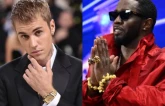
When Zulfikar Ali Bhutto became the prime minister of Pakistan, he was welcomed as an icon of change. His roaring claim to build a new Pakistan gained him a considerable following. Notwithstanding his reform agenda, the haste with which he wanted to do everything at once and the superego he was consumed with earned him more enemies than friends. His model of doing business failed.
Fast forward to Imran Khan. He also built the narrative of ‘New Pakistan’. He was welcomed as an icon of change in the suffocating political environment marred with corruption. He was in haste as well and consumed with the superego. He also made more enemies than friends. His style of doing business also failed.
In 1932 Adolf Hitler won elections and strived to regain Germany’s pride that had been soiled with repeated invasions, several divisions, and an attempt by the aristocratic Jews to transform Germans from a self-availing nation to an ordinary unaspiring group of people. He wanted to build a new Germany and regain its lost pride dating thousands of years. His model of doing business, built on the assumption of the superego, also failed. Since Hitler was the product of a warring Europe, the destruction he unleashed was allowed to continue until he succumbed to his own wrong decisions.
There are innumerable examples in history of leaders in a “hurry” to change the fate of their nation. The Morsi model was also built on the same lines.
There is another model that enabled its leaders to regain their lost respect without failing.
In recent history, one took place in South Africa, and the other happened in the United States of America. Nelson Mandela and Martin Luther King Jr followed the path of non-violence, made friends with their worst oppressors, and joined leagues with their tormentors. Their model of doing business is sustained.
The same model was adopted thousands of years back in the arid lands of Arabia. Muhammad (peace be upon him) enjoined his followers to respond to hatred with forbearance, and for 13 years, they tolerated oppression without retaliation.
Not that the Mesenger of Allah, Muhammad (peace be upon him) or modern-day leaders, Mandela and King, did not stand against their enemies. They did, but not before building character in their followers. If the opponents went two steps backward, they took three steps forward to embrace them. It takes enormous guts to respond to hatred with tolerance.
Why would not Muhammad (peace be upon him), with all the power in the world, uproot the Meccan system, incarcerate his opponents, and pit his community of the righteous against all those on the other side of the aisle? After spending 27 years in jail, how could Mandela walk out of it, bathed in the spirit of forgiveness? How could King forgive those who bombed his home and his church, killed black children, and even hated eating with them?
It was not easy for the Prophet (peace be upon him) or ordinary human beings like Mandela and King. It happened because they had hope on their side. The slogan of change sounds beautiful, but without hope, it dies even before budding. Neither Muhammad (peace be upon him) nor Mandela or King were in bringing any hasty change. They followed the principle of evolution, and their model of business succeeded.
Some months back, hundreds of Pakistanis perished in the Mediterranean Sea. They were going to Europe to earn a better living. Allegedly most of them had sold the property and dowries of their sisters and the jewelry of their wives to live a life of a nonentity in a foreign country. No country treats illegal immigrants with respect. It was a heartbreaking incident, and we collectively scolded everyone in the government to allow such a harsh thing to happen. Take a pause. Was it the government, the system, and the leaders alone to blame?
Pakistan is not the only country where people go abroad for better living. Pakistan is one of those countries where people trade life for death, not for a good cause but with a mindset that Pakistan has become unliveable. Let us be fair. The problem is with this mindset. The problem is not with Pakistan — the problem is with the model of doing business we have been following all along — as leaders and as citizens. A mindset that feeds on “change” imposed from outside sans “hope”.
What made West successful was the Protestant ethics of hard work, thrift and efficiency.
We may go abroad, but the recipe to success no matter where we go depends on doing business the right way — without haste and believing in the principle of evolution punctuated with handwork, efficient use of resources and denial from overconsumption.
The great jurist of Islam, Imam Abu Hanifah, summed up the value of hard work in his advice to his student, Imam Abu Yusuf. He said: “You were very unintelligent, but through striving and steadfastness, you have progressed. Therefore, always distance yourself from indolence as it is a calamity and an unfortunate state.”
Those who perished in the Mediterranean Sea could have saved their lives only if they were not, in haste, had faith in nature’s evolutionary process and had hope on their side.
Published in The Express Tribune, August 10th, 2023.
Like Opinion & Editorial on Facebook, follow @ETOpEd on Twitter to receive all updates on all our daily pieces.

1727489550-0/Untitled-design-(32)1727489550-0-405x300.webp)

1727481510-0/Untitled-design-(30)1727481510-0-165x106.webp)










COMMENTS
Comments are moderated and generally will be posted if they are on-topic and not abusive.
For more information, please see our Comments FAQ